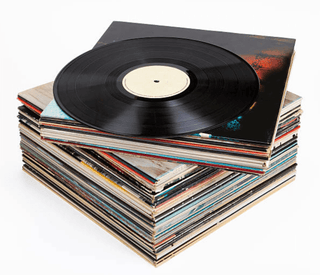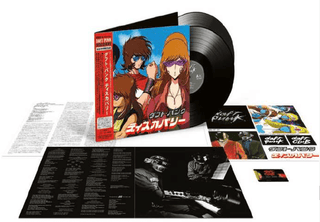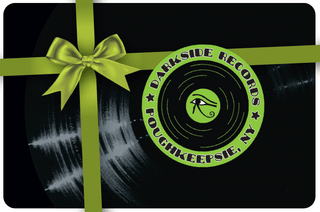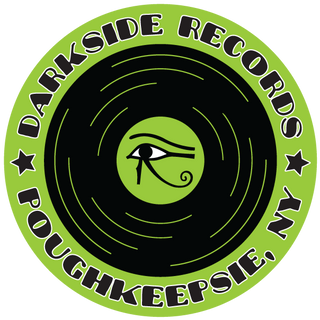George Azell- Conducts Beethoven Symphonies & Overtures (PREORDER)

George Szell conducts Beethoven Symphonies & Overtures
Many facets of George Szell come together in this album: Although born in Budapest to a Hungarian Jewish family, he was a true Viennese musician, supremely talented and rudely arrogant. Beethoven was central to his repertoire – even more so than for most conductors. The Cleveland Orchestra was the pearl in Szell’s crown. Artur Rodzinski turned a mediocre group into a fine ensemble; Szell polished it to perfection. Donal Henahan of The New York Times called it “the world’s keenest symphonic instrument.” A decade after Szell’s death, Cleveland’s music director Christoph von Dohnanyi complained: “We give a great concert, and George Szell gets a great review.”
A few doubters have complained that Szell’s performances were too fast, too hard, with no warmth; his response was “I cannot pour chocolate sauce on asparagus.” A stern taskmaster, he was neither a genial Bruno Walter nor a casual Charles Munch. Szell’s performances matched Toscanini’s for accuracy and correctness, but they lacked that maestro’s singing strings. Some Cleveland musicians claimed the orchestra was even better in rehearsal, that they were often “over-rehearsed” or “tight” in concert. Szell’s performances were not always a success; a January 1959 Beethoven Eighth was criticized for “the surprising number of ragged entrances” (Frank Hruby in the Cleveland Free Press). Yet any problems always seemed to be solved at recording sessions; this 1961 Beethoven Eighth is perfection, my all-time favorite performance. When one listens to these nine Beethoven symphonies, one does not hear a wrong note, a smudged entrance, an ill-tuned moment, nor an awkward phrase.
Severance Hall, the Cleveland Orchestra’s home since 1931, suffered from an overly dry acoustic – the last thing a Szell performance needed. The earliest of these recordings, the 1957 “Eroica,” was recorded in Cleveland’s Masonic Temple, a 2,200 seat auditorium where the orchestra played from 1921 to 1930. The summer of 1958 saw extensive acoustic renovations, including installation of what would become known as the Szell Shell. They proved successful, so the rest of the symphonies were taped in the refurbished Severance Hall, from 1959 to 1964; four overtures (Egmont, Coriolan, King Stephen, and Leonore No. 2) were recorded there in 1966, Fidelio and Leonore No. 1 at EMI’s St. John’s Wood studios in London, in 1967.
Epic Records, a full-price CBS label, was started in 1953, to carry music that “did not fit the theme of its more mainstream Columbia label” (Wikipedia). Cleveland didn’t fit because there was no room for it; Columbia already had the Philadelphia Orchestra, the New York Philharmonic, the Pittsburgh Symphony, and many minor orchestras churning out recordings for its main label. Cleveland became Epic’s flagship orchestra. The Beethoven symphonies and Leonore Overture No. 3 were all issued on Epic LPs; the other six overtures on Columbia.
Szell felt that Columbia shortchanged Cleveland in favor of Ormandy’s Philadelphia Orchestra and Mitropoulos’s New York Philharmonic, which were making far more recordings. Part of the reason was Szell’s limited repertoire: the 18th and 19th-Century Austro-German classics, to which he admitted Dvorák. He never recorded a French symphony – not Berlioz, not Bizet, not Franck, not Saint-Saëns. He disliked 20th-Century music intensely (of a new Stravinsky score: “It is written in the post-Webernian small-fart-burp-belch-hiccup technique.”) and recorded very little of it.
Money was always tight in Cleveland, its musicians badly underpaid. In Rodzinski’s time, the orchestra was about 80 players, meaning a half-sized string section. Szell managed to boost it to 100 by the time of these recordings. They were enormously troubled seasons, with continuing battles among Szell, the musicians, their union (which ruled rather than supported them), management, and the board. None of that can be felt in these faultless performances.
FEATURES:
- 7 CD-set in clamshell box with booklet
George Szell conducts Beethoven Symphonies & Overtures
Track List
- Beethoven: Symphony No. 1 in C Major Op. 21 (2018 Remastered Version)
- Beethoven: Symphony No. 2 in D Major Op. 36 (2018 Remastered Version)
- Beethoven: Symphony No. 3 in E-Flat Major Op. 55 "Eroica" (Remastered)
- Beethoven: Symphony No. 4 in B-Flat Major Op. 60 (2018 Remastered Version)
- Beethoven: Leonore Overture No. 3 Op. 72b (2018 Remastered Version)
- Beethoven: Symphony No. 5 in C Minor Op. 67 (2018 Remastered Version)
- Beethoven: Symphony No. 6 in F Major Op. 68 "Pastoral" (2018 Remastered Version)
- Beethoven: Symphony No. 7 in A Major Op. 92 (2018 Remastered Version)
- Beethoven: Symphony No. 8 in F Major Op. 93 (2018 Remastered Version)
- Beethoven: Symphony No. 9 in D Minor Op. 125 "Choral" (2018 Remastered Version)
- Beethoven: Egmont Overture Op. 84 (2018 Remastered Version)
- Beethoven: Coriolan Overture Op. 62 (2018 Remastered Version)
- Beethoven: Overture "King Stephen" Op. 117 (2018 Remastered Version)
- Beethoven: Leonore Overture No. 2 Op. 72a (2018 Remastered Version)
- Beethoven: Leonore Overture No. 1 Op. 138 (2018 Remastered Version)
- Beethoven: Fidelio Op. 72: Overture (2018 Remastered Version)
Shop online 24/7 at Darkside Records.
Follow us on Instagram.
George Szell conducts Beethoven Symphonies & Overtures
Many facets of George Szell come together in this album: Although born in Budapest to a Hungarian Jewish family, he was a true Viennese musician, supremely talented and rudely arrogant. Beethoven was central to his repertoire – even more so than for most conductors. The Cleveland Orchestra was the pearl in Szell’s crown. Artur Rodzinski turned a mediocre group into a fine ensemble; Szell polished it to perfection. Donal Henahan of The New York Times called it “the world’s keenest symphonic instrument.” A decade after Szell’s death, Cleveland’s music director Christoph von Dohnanyi complained: “We give a great concert, and George Szell gets a great review.”
A few doubters have complained that Szell’s performances were too fast, too hard, with no warmth; his response was “I cannot pour chocolate sauce on asparagus.” A stern taskmaster, he was neither a genial Bruno Walter nor a casual Charles Munch. Szell’s performances matched Toscanini’s for accuracy and correctness, but they lacked that maestro’s singing strings. Some Cleveland musicians claimed the orchestra was even better in rehearsal, that they were often “over-rehearsed” or “tight” in concert. Szell’s performances were not always a success; a January 1959 Beethoven Eighth was criticized for “the surprising number of ragged entrances” (Frank Hruby in the Cleveland Free Press). Yet any problems always seemed to be solved at recording sessions; this 1961 Beethoven Eighth is perfection, my all-time favorite performance. When one listens to these nine Beethoven symphonies, one does not hear a wrong note, a smudged entrance, an ill-tuned moment, nor an awkward phrase.
Severance Hall, the Cleveland Orchestra’s home since 1931, suffered from an overly dry acoustic – the last thing a Szell performance needed. The earliest of these recordings, the 1957 “Eroica,” was recorded in Cleveland’s Masonic Temple, a 2,200 seat auditorium where the orchestra played from 1921 to 1930. The summer of 1958 saw extensive acoustic renovations, including installation of what would become known as the Szell Shell. They proved successful, so the rest of the symphonies were taped in the refurbished Severance Hall, from 1959 to 1964; four overtures (Egmont, Coriolan, King Stephen, and Leonore No. 2) were recorded there in 1966, Fidelio and Leonore No. 1 at EMI’s St. John’s Wood studios in London, in 1967.
Epic Records, a full-price CBS label, was started in 1953, to carry music that “did not fit the theme of its more mainstream Columbia label” (Wikipedia). Cleveland didn’t fit because there was no room for it; Columbia already had the Philadelphia Orchestra, the New York Philharmonic, the Pittsburgh Symphony, and many minor orchestras churning out recordings for its main label. Cleveland became Epic’s flagship orchestra. The Beethoven symphonies and Leonore Overture No. 3 were all issued on Epic LPs; the other six overtures on Columbia.
Szell felt that Columbia shortchanged Cleveland in favor of Ormandy’s Philadelphia Orchestra and Mitropoulos’s New York Philharmonic, which were making far more recordings. Part of the reason was Szell’s limited repertoire: the 18th and 19th-Century Austro-German classics, to which he admitted Dvorák. He never recorded a French symphony – not Berlioz, not Bizet, not Franck, not Saint-Saëns. He disliked 20th-Century music intensely (of a new Stravinsky score: “It is written in the post-Webernian small-fart-burp-belch-hiccup technique.”) and recorded very little of it.
Money was always tight in Cleveland, its musicians badly underpaid. In Rodzinski’s time, the orchestra was about 80 players, meaning a half-sized string section. Szell managed to boost it to 100 by the time of these recordings. They were enormously troubled seasons, with continuing battles among Szell, the musicians, their union (which ruled rather than supported them), management, and the board. None of that can be felt in these faultless performances.
FEATURES:
- 7 CD-set in clamshell box with booklet
George Szell conducts Beethoven Symphonies & Overtures
Track List
- Beethoven: Symphony No. 1 in C Major Op. 21 (2018 Remastered Version)
- Beethoven: Symphony No. 2 in D Major Op. 36 (2018 Remastered Version)
- Beethoven: Symphony No. 3 in E-Flat Major Op. 55 "Eroica" (Remastered)
- Beethoven: Symphony No. 4 in B-Flat Major Op. 60 (2018 Remastered Version)
- Beethoven: Leonore Overture No. 3 Op. 72b (2018 Remastered Version)
- Beethoven: Symphony No. 5 in C Minor Op. 67 (2018 Remastered Version)
- Beethoven: Symphony No. 6 in F Major Op. 68 "Pastoral" (2018 Remastered Version)
- Beethoven: Symphony No. 7 in A Major Op. 92 (2018 Remastered Version)
- Beethoven: Symphony No. 8 in F Major Op. 93 (2018 Remastered Version)
- Beethoven: Symphony No. 9 in D Minor Op. 125 "Choral" (2018 Remastered Version)
- Beethoven: Egmont Overture Op. 84 (2018 Remastered Version)
- Beethoven: Coriolan Overture Op. 62 (2018 Remastered Version)
- Beethoven: Overture "King Stephen" Op. 117 (2018 Remastered Version)
- Beethoven: Leonore Overture No. 2 Op. 72a (2018 Remastered Version)
- Beethoven: Leonore Overture No. 1 Op. 138 (2018 Remastered Version)
- Beethoven: Fidelio Op. 72: Overture (2018 Remastered Version)
Shop online 24/7 at Darkside Records.
Follow us on Instagram.







